KPMG propels private enterprises in Vietnam towards sustainable excellence
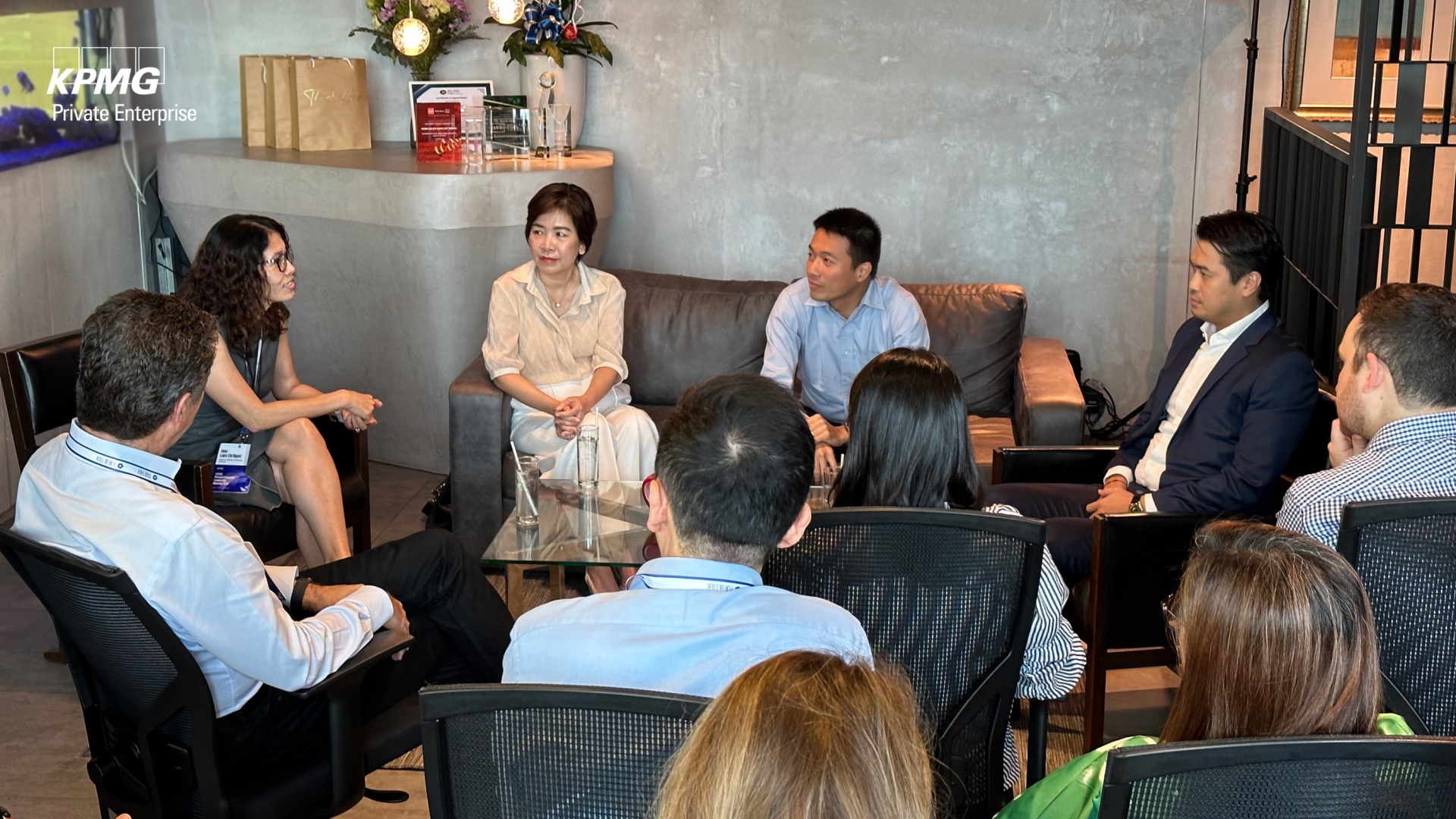 |
| Vietnamese private enterprises engage in strategic talks on global expansion with KPMG's expertise |
What are the major obstacles that PEs face today? And how can these challenges be addressed?
PEs around the world are facing several significant challenges. One of the primary concerns is the impact of economic downturn and inflationary pressures on their businesses. To address this, PEs are streamlining their operations to minimise the impact and ensure they have strategies in place to navigate through turbulent times.
Another challenge is meeting customer expectations and demands. PEs must respond effectively by focusing on delivering exceptional customer experiences, understanding market trends, and adapting their products and services accordingly.
The rapid pace of technological advancements is also a challenge for PE. To stay competitive, companies need to accelerate the adoption of digital technologies such as AI, blockchain, and the Internet of Things. Embracing digital transformation is essential to making businesses ready for the future.
PEs are also grappling with the 'war for talent' in the new world of work. It's crucial for companies to recruit and retain top-performing employees. This requires creating attractive work environments, offering competitive compensation packages, and providing opportunities for professional growth and development.
Additionally, PEs face cybersecurity risks, including cyberattacks, ransomware, and phishing attempts. To address these threats, companies must adopt robust security measures, evaluate data backup and recovery processes, and educate their employees about cybersecurity best practices.
Managing tax risks and reputational concerns is another challenge for private enterprises. As leaders focus on growth, they need to navigate the implications of new tax policies and consider government incentives. Maintaining compliance and ethical practices is essential for preserving a company's reputation.
Finally, PEs are increasingly expected to reduce their environmental impact and embrace social responsibilities. They need to prioritise sustainable business practices, reduce their carbon footprint, and contribute to the wellbeing of their communities.
To address these challenges, PE should adopt a proactive and strategic approach. This includes leveraging technology, investing in talent acquisition and retention strategies, implementing robust security measures, staying informed about tax policies, and embracing sustainability initiatives.
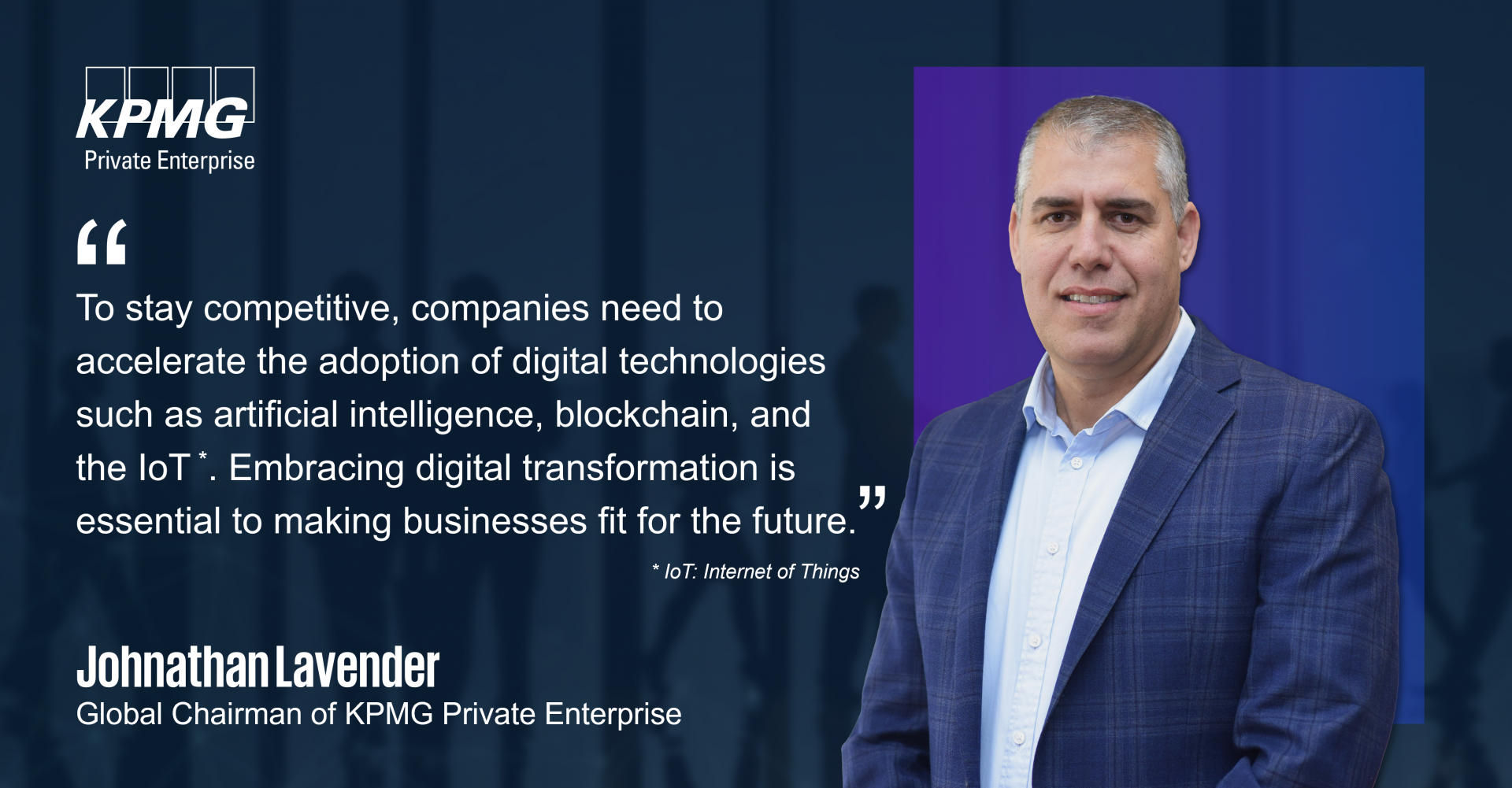 |
How significant are family businesses and PEs to Vietnam's economy, and how have they contributed to the country's economic recovery?
Family businesses and PEs play a vital role in Vietnam's economy, as is the case in many countries. According to the Vietnam Chamber of Commerce and Industry, the 100 largest family businesses in Vietnam contribute approximately 25 per cent of the country's GDP. Moreover, many of the top 50 listed companies in Vietnam are family businesses, including prominent names such as Vingroup, Vietjet Air, Thanh Thanh Cong, and Kido.
The resilience, agility, and long-term focus of family businesses have proven to be crucial in driving the country's post-pandemic economic recovery. Their ability to make swift decisions and adapt to changing market conditions has helped sustain business operations and maintain employment levels. Family businesses often possess strong ties to their local communities, fostering a sense of responsibility and commitment that further contributes to the recovery efforts.
What guidance or services does KPMG offer to PEs in Vietnam seeking to enter global markets?
As Vietnamese family businesses and other PEs look to global markets for their growth, there isn’t a one-size-fits-all approach for expanding internationally. To assist them in entering global markets, we offer comprehensive guidance and specific services tailored to their needs. One crucial aspect is ensuring that their products or services align with the demands of the target market. Is there a real need - as well as an interest - in the company’s products or services in specific markets that are being explored?
To address this question, we provide realistic market insights to assess market appetite and validate the potential investments required. Our professionals on the ground have the expertise to understand the local languages, currencies, and customer service functions, potential trade restrictions, tax and customs, which are crucial for customers in international markets.
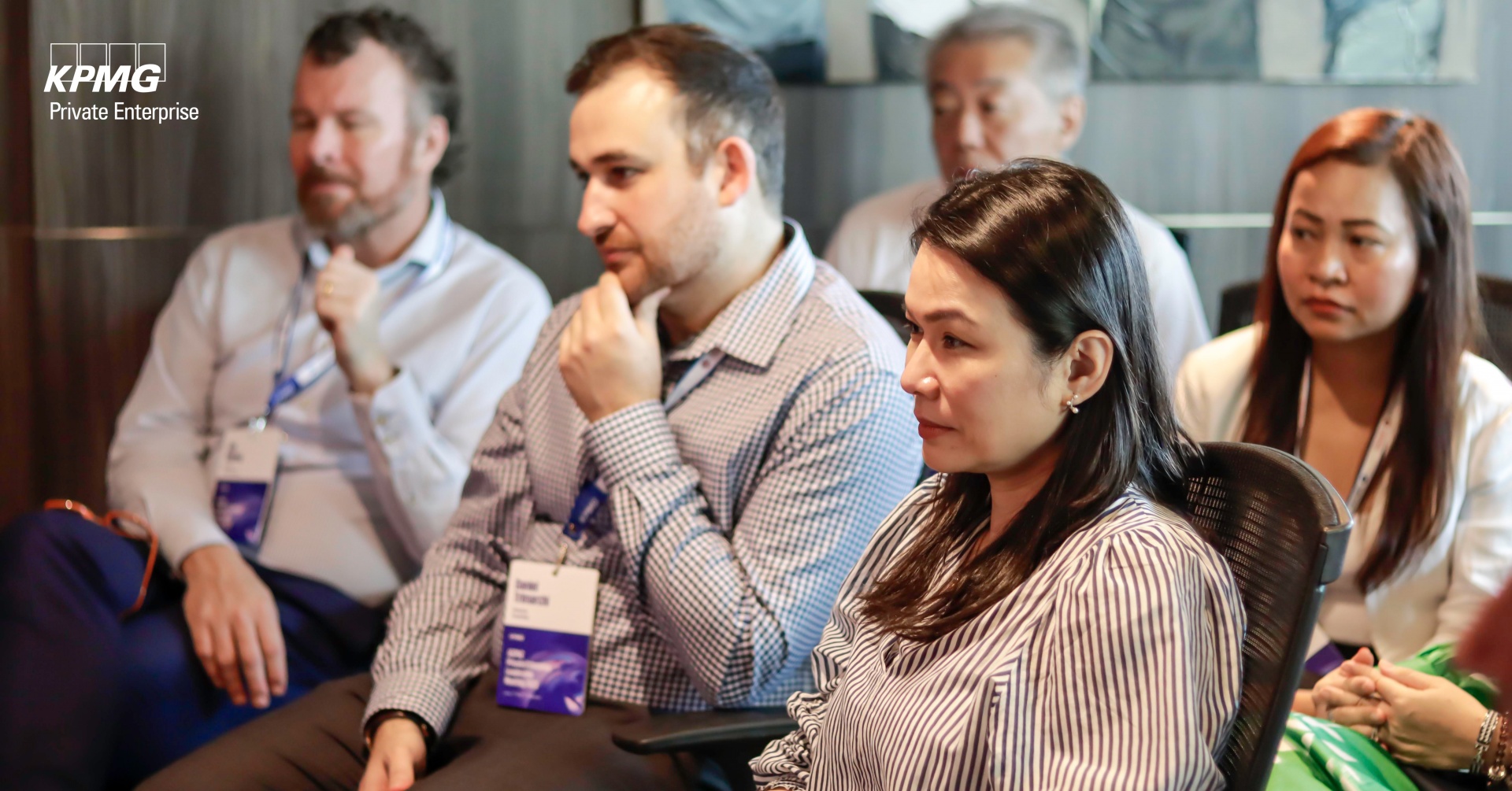 |
Can you share any international expansion success stories facilitated by KPMG?
We have been supporting the introduction of a low-cost, green-energy tech innovation developed by a UK-based PE in Eastern Europe, the US, and the UAE. With our presence in these countries, we can provide valuable insight into regulatory compliance, taxation frameworks, labour laws, and supply chains, allowing the company to make informed decisions. Additionally, we have a global network of approximately 2,500 mergers and acquisitions professionals who collaborate on cross-border transactions, assisting companies in achieving international expansion.
How can PEs in Vietnam entice and retain top talent in spite of competition from multinationals, and how can KPMG help to do so?
PEs in Vietnam often face fierce competition from multinational corporations in attracting and retaining top talent. To address this, KPMG assists private enterprises in developing effective human resource strategies. We understand the importance of talent acquisition and retention for sustainable growth. Our expertise allows us to advise on best practices for attracting and retaining talented individuals. We help private enterprises design competitive compensation packages, develop attractive career progression plans, and establish a positive work culture that fosters employee engagement and loyalty.
How can KPMG help PEs in Vietnam achieve their goal of long-term sustainability?
KPMG has identified eight key factors that contribute to the sustainability performance of businesses, as outlined in the KPMG Private Enterprise family business study. These keys are:
Highly structured governance: Effective business processes and control mechanisms are essential, and family governance helps define the family's objectives and achievements. For family businesses in Vietnam beginning their sustainability journeys, clear roles and responsibilities within the owning family are crucial for fostering communication, consensus-building, and long-term vision.
Active involvement of non-family members: Research has shown that having both family and non-family members directly involved in the business positively impacts sustainability and the digital agenda. Vietnamese family businesses dominated by family members may benefit from adding external members to gain objective perspectives and improve sustainability performance.
Dispersed family ownership: Keeping sustainability investments solely within the family may not always be the best option. Collaboration with external capital providers can be advantageous, especially when significant restructuring is necessary to align with sustainable business requirements.
Gender diversity: Female leaders in family firms bring a unique combination of hard and soft skills, contributing to sustainability efforts. Their competencies help maintain focus on responsible pillars that support sustainable strategies in Vietnamese family businesses.
Digitalisation: Digital transformation can play a vital role in sustainability, particularly in environmental areas, where adopting the right technologies reduces pollution and waste. Vietnamese family businesses should consider digitalisation for streamlining operations and generating high-quality data to track and measure sustainability progress.
Leadership style: Sustainable strategies must be driven from the top. A leader with the relevant background and skills should spearhead change and be seen as the driving force throughout the organisation.
Entrepreneurial mindset: The entrepreneurial mindset of family businesses enables them to identify opportunities, overcome challenges, and drive innovation and transformation. Vietnamese family businesses should prioritise environmental and social impact objectives alongside economic goals.
Forward-looking orientation: Family businesses should consider the needs of future generations and aim to leave a better company behind them. By making sustainability a centrepiece of their purpose and long-term vision, they can justify sustainability investments and translate them into economic, environmental, and societal performance for future generations.
To ensure long-term sustainability, PEs in Vietnam can apply these keys by integrating them into their business strategies, governance structures, and decision-making processes. By embracing sustainability as a core value, businesses can attract customers, investors, and partners who value environmental, social, and governance (ESG) initiatives. Vietnamese companies' commitments to ESG, particularly in renewable energy transition, are paving the way for PEs to prioritise sustainable development and growth.
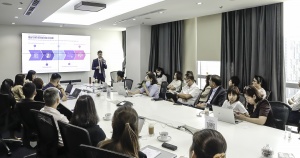 | KPMG provides businesses with helpful solutions to manage cost and treasury On February 15 and 17, the workshop Cost and Treasury Management for Corporates took place at KPMG Vietnam’s regional offices in Hanoi and Ho Chi Minh City, attracting the presence of Luu Bao Lien, partner and head of Financial Management Consulting, Tim Kramer, director and head of the Special Situations Group, Hoang Thi Linh Chi, manager of Financial management Consulting, and Vu Quyen, director at FIS Global. |
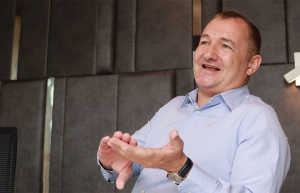 | Valuable guidance for operating in Vietnam Amidst a backdrop of shifting economic paradigms, the Vietnamese economy stands resilient in its pursuit of growth and sustainable development. Warrick Cleine, chairman and CEO of KPMG in Vietnam and Cambodia, shared with Celine Luu the ongoing trends and prospects in Vietnam’s business landscape. |
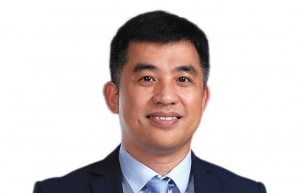 | Decoding preferences of investors in tech startups In an exclusive interview, VIR’s Luu Huong explored Vietnam’s vibrant startup ecosystem with Hung Truong, senior investment director at SK Vietnam and judge for the KPMG Global Tech Innovator 2023, discussing investor preferences, regional competition, and strategies for startups. |
What the stars mean:
★ Poor ★ ★ Promising ★★★ Good ★★★★ Very good ★★★★★ Exceptional
Related Contents
Latest News
More News
- KPMG launches tariff modeller in Vietnam to navigate US tariff risks (July 29, 2025 | 12:11)
- Removing hidden barriers to unlock ASEAN trade (June 29, 2025 | 11:31)
- New report charts path for Vietnam’s clinical trial growth (May 21, 2025 | 08:58)
- TTC Agris strengthens market position with investment in Bien Hoa Consumer JSC (May 19, 2025 | 10:14)
- World Bank to help SBV build shared database for banking industry (April 09, 2025 | 08:55)
- New trade alliances and investment hubs are redefining global power dynamics (April 03, 2025 | 17:00)
- ACCA and KPMG forge path for business leaders to pioneer ESG excellence (March 07, 2025 | 10:09)
- VietBank signs MoU with KPMG (February 26, 2025 | 18:47)
- Warrick Cleine MBE: an honour for services to British trade and investment in Vietnam (December 31, 2024 | 20:16)
- KPMG report offers fresh insight into leveraging AI (December 24, 2024 | 09:23)

 Tag:
Tag:



















 Mobile Version
Mobile Version